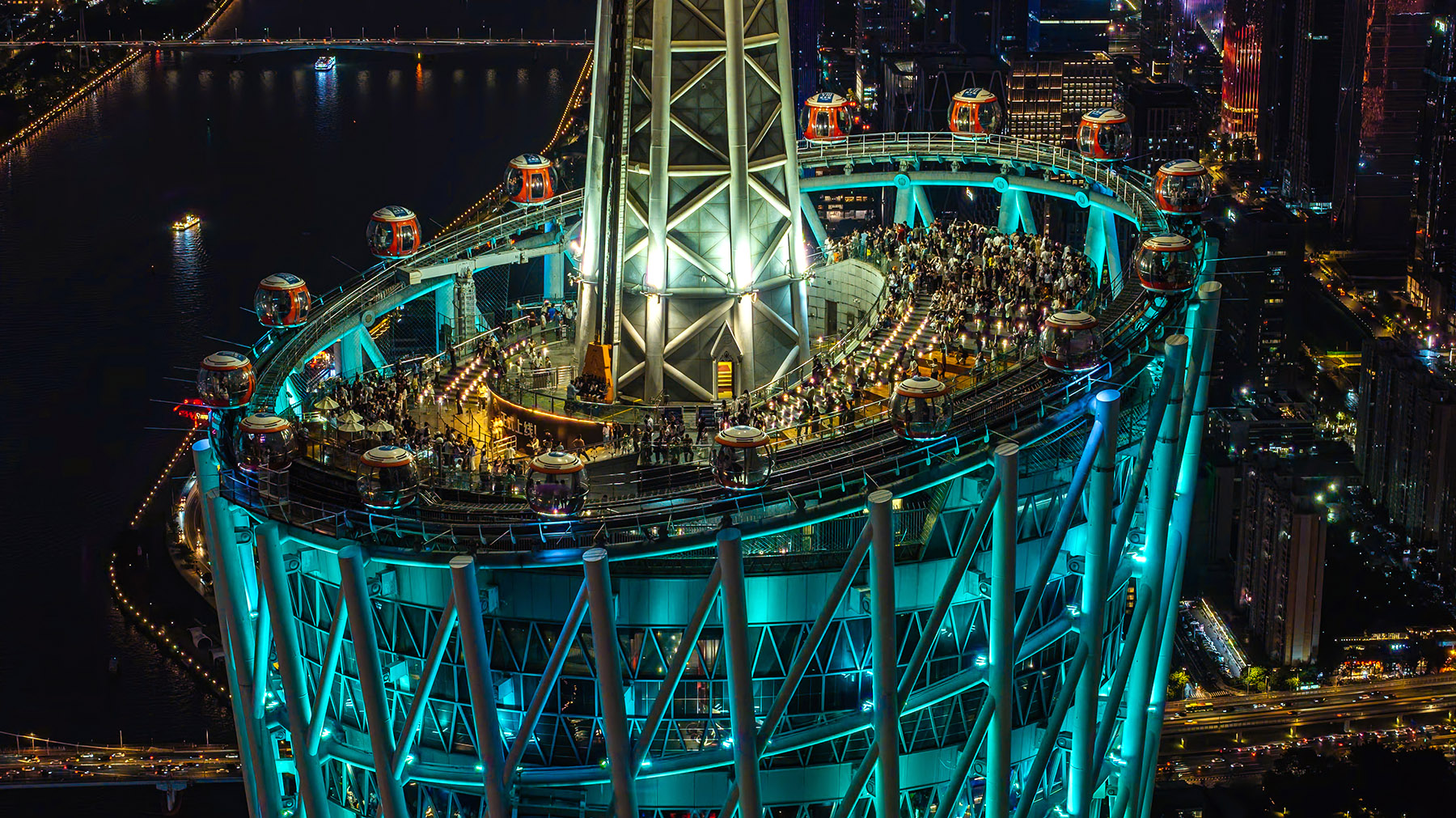
Taking a micro-vacation on weekends has become trendy among Chinese consumers in the Guangdong-Hong Kong-Macao Greater Bay Area, and the robust demand has not only driven high-frequency short-distance consumption in the region, but has also attracted investments from multiple international hotel groups.
Besides Chinese mainland travelers, the growing trend of Hong Kong residents heading north to the Chinese mainland for dining and entertainment, coupled with inbound tourists to the GBA, a core city cluster, has boosted the dynamism of the local tourism market.
In particular, the demand for high-end and tailored tours is growing, and more people are seeking private and niche travel experiences. Young consumers, especially Generation Z — those born between 1995 and 2009 — have become the main force of such consumption, industry insiders observed.
READ MORE: Shenzhen cross-border travelers top 100 million amid tourism boom
This trend has attracted a growing number of international hotel groups to open new hotels in the region to satisfy demand.
Alila, a luxury hotel brand under Hyatt Hotels Corp, launched the Alila Dong'ao Island Zhuhai resort in April. The resort is perched atop a cliff at the southernmost tip of Dong'ao Island in Zhuhai, Guangdong province.
Many consumers are no longer satisfied with basic accommodation, and they tend to pursue more emotional values such as cultural immersion and natural healing experiences, said Chua Thin Thin, general manager of Alila Dong'ao Island Zhuhai.
The demand for customized tours has been growing significantly, as Chinese consumers are increasingly seeking different kinds of trips such as group building tours, study tours, multi-family outings, island destination weddings and tours for well-being purposes, Chua said.
Chua added that the hotel and the region are expected to attract more travelers from the GBA, as well as ecological travelers from the United States and European countries.
Such a trend is expected to be further boosted by China's efforts to boost inbound tourism and consumption, including the unilateral visa-free policy to multiple countries and 240-hour visa-free transit arrangement.
As a major maritime province, Guangdong has nearly 2,000 islands of various sizes. Among them, the number of islands located in the GBA exceeds 1,000, according to the local government.
The city of Zhuhai is building itself up as an international coastal leisure tourism destination, and Dong'ao Island serves as an engine for driving the cultural and tourism development of Zhuhai, said Chua.
With a helicopter landing pad and other modes of transportation such as yachts and high-speed ferries, it is now more convenient than ever for nearby consumers to go to the island.
Meanwhile, Marriot International recently launched its 600th hotel in China in Shenzhen, Guangdong, and the group now operates more than 90 hotels in the GBA, it said.
The group said it will continue to focus on key city clusters in cities including Shenzhen, Zhuhai and Foshan, and leverage the convenient intercity transportation network to meet diverse travel demand and support regional economic growth.
ALSO READ: Guangdong embraces overseas visitors to drive consumption
China will continue to develop the consumption potential of culture, tourism and sports, and improve the market system of cultural sectors, accelerate the growth of new cultural formats and vigorously develop the tourism industry, said the Government Work Report that was delivered in March.
The GBA is focusing on promoting tourism growth with simplified visa policies for international visitors and building better transportation connectivity to promote cross-border tourism, the local government of Guangdong said.
"For urban tourism, especially for city clusters like the GBA, factors such as the quality of life, in addition to well-developed transportation facilities and local public services, stand as the most important core attractions and institutional guarantees for city clusters to build a world-class tourism destination," said Dai Bin, president of the China Tourism Academy.
Contact the writer at zhuwenqian@chinadaily.com.cn


